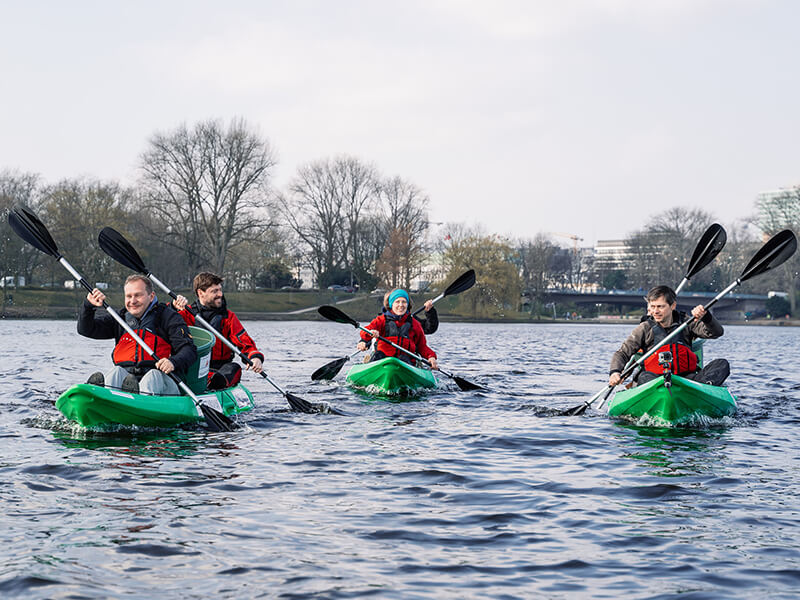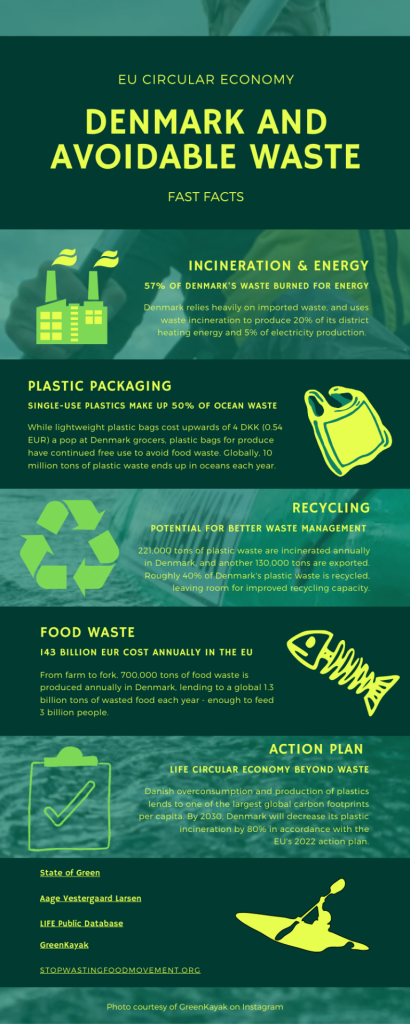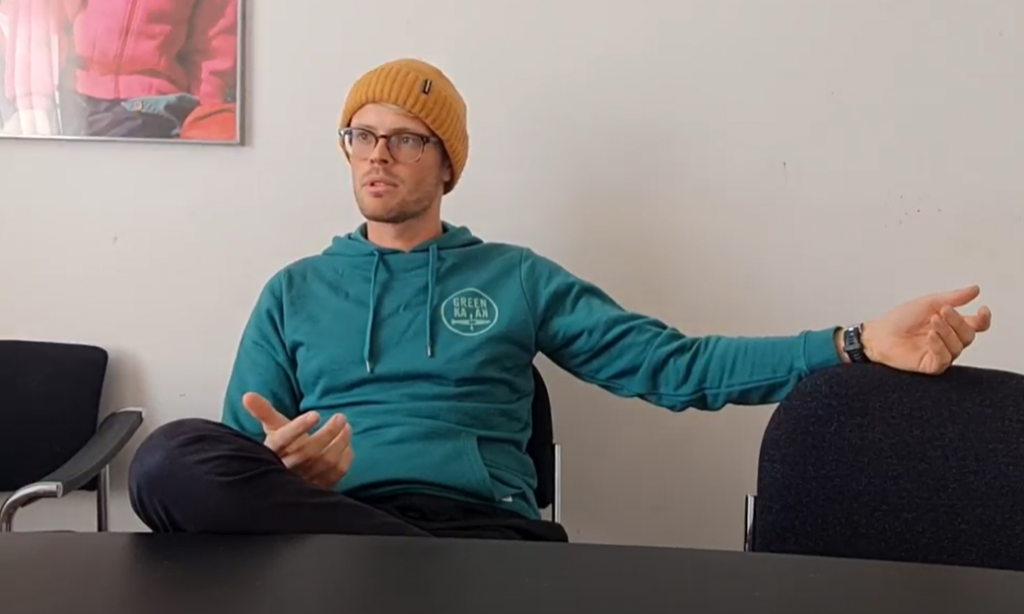By Kyran Berlin | March 14, 2022

While Denmark ranks high in global sustainability, the overconsumption of plastic creates one of the highest carbon footprints in the world at 19 tonnes per capita, according to a new EU Commission project. Additionally, less than 60% of the sorted and registered waste in Denmark is recycled.
Enter: GreenKayak. The NGO offers for free kayak rentals in Copenhagen under two conditions: you spend your time collecting trash, and you share the experience on social media under #GreenKayak.
“It’s important to see that people do this intrinsically because they want to do something good,” Co-Founder Oke Carstensen said. “What we really want to do is we want to give you this experience on the water that you see, and not only hear because everyone hears about [plastic waste].”
As of March 2022, GreenKayak has engaged more than 38,000 people in collecting over 60 tonnes of waste from rivers and oceans in Europe. The majority of the trash collected are lightweight items like plastic bags, Q-tips and utensils, according to Carstensen.
The organization started with a single boat, and has grown to 75 kayaks spread between sixteen cities in Denmark, Sweden, Norway, Ireland and Germany.
Tourists make up roughly 40% of GreenKayak’s paddlers in 2021, and reservations for the 2022 season begin in April.

This article is written for outdoorsy international tourists interested in making their trip to Copenhagen more memorable and sustainable, and could be published in https://www.afar.com/
